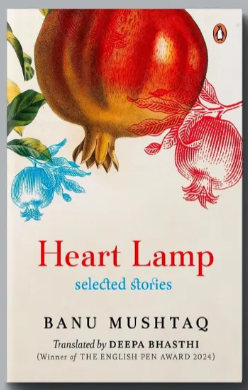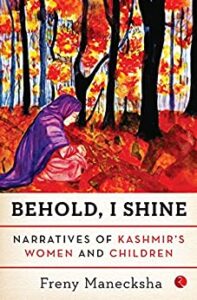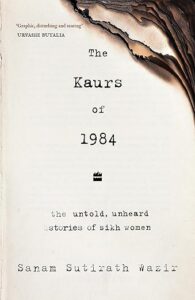Heart Lamp is a collection of stories originally written by Banu Mushtaq in Kannada. The stories were written over a period of three decades, from 1990 to 2023. The book is translated into English by Deepa Bhasthi, and it won the prestigious International Book Prize, 2025. I heard about Banu Mushtaq only after her recent win, which made me realise how an English translation can give national and international recognition to an author.
We have so many brilliant writers who write in regional languages, whose work remains confined to the readers of that language. Even if all the books were translated into every language, we would still be unable to read them all. Yet, as readers, we often feel we are missing out on some great work. As Frank Zappa aptly said, “So many books, So little time”. And now, with social media consuming a significant portion of our time, that time has become even more limited.
What the Book Contains
Heart Lamp has twelve stories that talk about the normal day-to-day lives of Muslim women of Karnataka. It talks about the Muslim families, usually from the middle and lower middle class, with a keen observation on the roles and conditions of Muslim women in the family and their society. Each story has multiple layers to it, and as you read, you peel them one by one to uncover the subtle nuances hidden in a simple yet evocative narrative. One gets to understand the living conditions, the belief systems, the prevalent patriarchy, the suppression of women, and the religious dogmas of the Muslim society.
The opening story, “Stone Slabs for Shaista Mahal” of Iftakar and Shaista, is a tragic irony that sets up the tone of the book. Iftakar never missed a chance to profess his deep love for his wife. He even vowed to build a “Shaista Mahal” for his lovely wife. Yet, he remarried just 40 days after her death, shortly after she gave birth to their seventh child.
If your mother dies, it’s the death of your mother’s love too. You will not get that kind of love from anyone else. Huh. But if the wife dies, it is a different matter, because one can get another wife.
While reading these stories, you will encounter different aspects of Muslim society, along with the social and religious issues that shape it. One story, “Black Cobras,” particularly hits hard and leaves you angry and frustrated. It is about a man who left his wife and three daughters to marry a much younger woman. She is left to fend for herself and for her daughters. She reaches out to the local mosque and seeks help and justice from the mutawalli (caretaker/manager), but he favours her husband, who had bribed the mutawalli. It leaves the readers to reflect on the brutal reality women face in a world where she is denied their rights and dignity.
The book also clarifies many myths surrounding Islam and explains what the Holy book Quran, and the Hadiths say about women and their rights. One of the characters in the story “Black Cobra” says that people with vested interests have taken over our holy books and use them as per their convenience to control women and curtail their rights. She says that these people who talk about Sharia don’t even know themselves what it is, and even if they know, they twist it to suit themselves.
See, that is where the biggest problem is. In a lot of our Jamaat, the mutawallis don’t know the law themselves. Secondly, they don’t have the authority to implement the law. Thirdly, no one listens to them. And then they accept only the parts of the law that suit them. Where this Sharia law remains is in the laps of poor women like you.
Another story, “Red Lungi,” captures the “khatna” ceremony for the kids of a wealthy family, turned into an extravagant event. For non-Muslim readers like me, it was a new learning. I knew about khatna, but the story tells about the significance and the rituals around the ceremony, and how it is different for rich and poor children. Religion and religious rituals are the same for everyone, but there is a stark difference in how the rich and the poor celebrate/perform the rituals.
Each story is different, yet there is a common thread that runs through all. They all tell the story from a woman’s perspective. Banu Mushtaq weaves the stories of Muslim women and their conditions in the Muslim household and Muslim society. The author gives the readers a glimpse into the day-to-day lives of Muslim society and Muslim women through some moving, humorous, painful, and infuriating stories. She also underlines how religion is used as a tool to oppress women
.
Heart Lamp is an emotional and evocative read. It is a portal into a world as seen through the eyes of women. And it is not a gentle and just world, although the stories are of Muslim women, but they hold true for the poor and marginalized women of all religions.
About the Author
Winner of the International Booker Prize 2025 for Heart Lamp. Banu Mushtaq is a writer, activist, and lawyer in the state of Karnataka, southern India.


